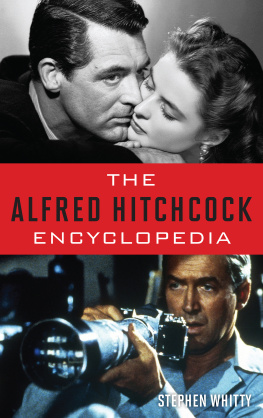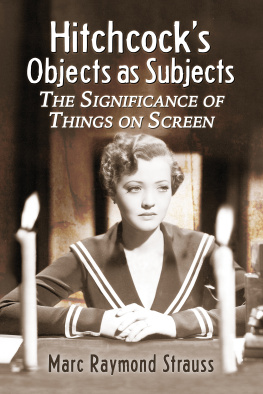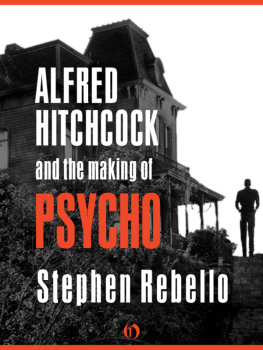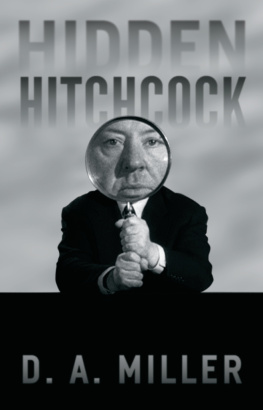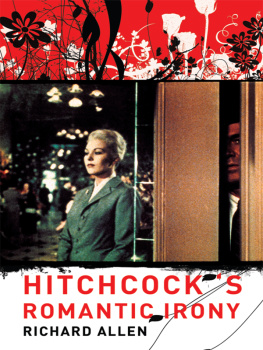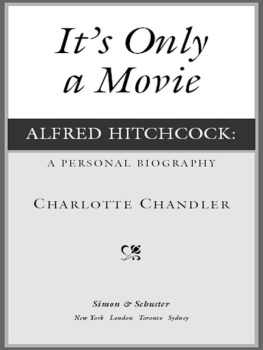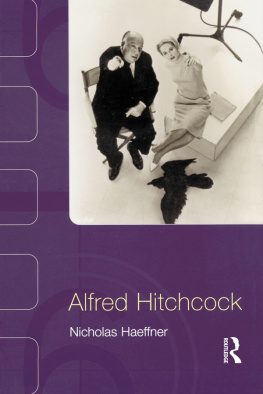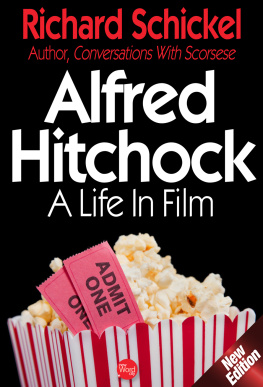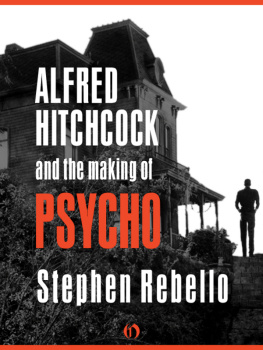John Russell Taylor is an English critic and author. He was born in Dover and attended Dover Grammar School before obtaining a double first in English from Jesus College, Cambridge.
He is the author of a vast number of critical works on cinema, and of biographies of important Anglo-American film figures including Orson Welles, Vivien Leigh and Alfred Hitchcock, whom he befriended in LA while teaching at the University of Southern California in the 1970s. Taylors biography of Hitchcock is the only one to be written with its subjects full cooperation it was also the impetus for his intensive study of Hollywoods migr in his book Strangers in Paradise: The Hollywood Emigres 1933-1950.
Taylor has written regularly for publications such as The Times, Sight and Sound, The New York Times, and The Los Angeles Times throughout his career and was art critic for The Times until 2005.
He now lives in London and West Wales.
In 1899 the London borough of Leytonstone was not a borough, and was not even in London. Somewhere out there in the indeterminate east, near the Wanstead marshes, it was just shaking itself out of its traditional condition as a sleepy Essex village and receiving the dubious benefits of strip development along the main road from London to the North Sea packet-boats which docked at Harwich. Fifteen years earlier, at about the time when William Hitchcock, master greengrocer, was setting up his wholesale and retail fruiterers business in a modest London stock-brick shop with living quarters above at 517 the High Road, the area seems to have been noted mainly as the most convenient point to alight from the train for East Londoners on pleasure bent in the woody wilderness of Epping Forest. The maps show open spaces all roundEpping Forest, Wanstead Park, Leyton Flats, the Great Shrubbageand, slightly less alluring, Bethnal Green Workhouse Schools, a large infant orphan asylum, and the new City of London Cemetery, placed there no doubt because land was still readily available before the tide of lower-income housing covered it all in brick and mortar, and the area still offered fresh country air to the orphans and workhouse children from Londons teeming East End.
In any case, it was a good place for an enterprising young tradesman to be in the 1880s. The population was soaring, and covered a whole social spectrum, from the old Essex gentry and the prosperous middle-class inhabitants of Walthamstow and Epping to the newly arrived workers spreading out from neighbouring East Ham and Leyton. The wholesale side of William Hitchcocks business covered a considerable area, supplying small local shops and general stores with fruit and vegetables; the retail side also flourished, to such an extent that he rapidly took over another shop on the other side of Leytonstone High Road. His three brothers were all fishmongers, and as he continued to expand, persuaded him to join them in the fish shops as well, building up finally a chain which extended all over South London, to become one of the major elements of the giant 1930s combine Mac Fisheries. In the 1890s, though, most of this was still in the future. In 1890 William started a family with a son, William, followed in 1892 by a daughter, Nellie, and then, seven years later, his third and last child, Alfred Joseph, born on 13 August 1899.
It was, as things turned out, rather a good year for English show business. Two other notables in particular sprang from the same sort of solid, respectable lower-middle-class background: Charles Laughton, born six weeks earlier in Scarborough, Yorkshire, and Nel Coward, born four months later about as far west of London, in Teddington, as Alfred Hitchcock was born east of it, in Leytonstone. Both offer, in their careers and personalities, a number of curious parallels and contrasts. Coward seems at first glance remote from Hitchcock, but their unpredictable mixtures of sentimentality and cynicism, their fierce English patriotism combined with easy cosmopolitanism, their extreme social mobility and command in many areas of society other than that in which they originated, their ability to create their own fantasy worlds and impose them without question on the public, all indicate an improbable similarity. Laughton, great if unpredictable actor, rotund like an overgrown baby, cynic and sensualist, actually crossed paths with Hitchcock professionally on a couple of occasions, and had one even more important attribute in common with him than had Coward: he was born and brought up a Roman Catholic.
For the Hitchcock family were that relative rarity in their class and with their background, long-standing English Catholics. In the East End of London, a melting-pot of nationalities, there was at that time and since a considerable Catholic population of, mostly, recent Irish extraction. And there were still pockets of the old Catholic gentry surviving not too far away, in East Anglia. Also there were in more intellectual circles a number of converts swept in by the great Catholic revival of the mid-nineteenth century, the period of Newman and Manning. But the Hitchcocks did not belong to any of these groups. No record seems to have survived of how and why they were Catholicall members of the family now know is that they always seem to have been, and so stood slightly apart from their neighbours and peers, who tended to be Church of England or, if they began as Nonconformists, shifted allegiance to the Established Church as they moved up in the world. And religion was important in the family; the parents were devout, regular churchgoers and very strict with the children, who had to go every week some miles down the road to Sunday school at St. Francis, Stratford, had to make regular confession and received an almost entirely Catholic schooling. Latterly, the parents seem to have drifted from such strict devotion, but this was the rather severe, restrictive and self-consciously special atmosphere, of a family apart, keeping itself very much to itself, into which Alfred Hitchcock was born.
He seems to have been a rather solitary child. The baby of the family, seven years younger than his sister, he did not have much to do with his brother and sister at that time, since in childhood seven years seems like an unbridgeable abyss. Occasionally a childlike resentment at being left out made itself felt. On one occasion they were going off for a bicycle ride to the near-by Green Man public house and explained to him firmly that he could not come because he was too young to ride a bicycle and would fall off. He countered with the notion that this merely demonstrated the silliness of bicyclesif they had three wheels nobody would fall off. It was only later he discovered that such a thing as a tricycle did exist, and congratulated himself on having worked out the idea entirely on his own through the functioning of natural logic.
If he was left out of some of the pleasures, he was also fortunately excused some of the less comfortable duties. On Sundays after mass William and Nellie had to lend a hand minding the second shop over the road, but Alfred was never allowed to work in the shop. Despite which his very earliest memories are connected with the business. Right behind the house were the ripening sheds, and a vivid early impression is the scene inside them: with the great bunches of bananas ripening by the warmth of gas flares, the sight and the smell and the distinctive hiss. When he was a little older he was allowed to go out with the deliveries of fruit and vegetables to grocers all over the Epping area, often a whole day round by horse-drawn van. Another process which fascinated him was the husking of walnuts, which used to come into the shop still in their fleshy green outer coats and be husked ready for sale by the shop workers.
But not all memories are so happy. One that sounds like a perfect Rosebud storycould this be the key to so much wariness, so much silent watchfulness in later life?is that when he was about five he woke up late one Christmas Eve to see his mother taking a couple of toys out of his stocking to put in his brothers or his sisters, and replacing them with two oranges. Another, which made an unaccountably profound impression on him, was waking up around eight oclock one Sunday evening to find that his parents were out and there was only the maid watching over him in his room. This produced such a feeling of desolation and abandonment that he still remembered it when he got married, and insisted that there should always be a hot meal at home on Sunday evening and that he and his wife should be as far as possible always within call of their daughter at this vulnerable period of her childhood. Then there is the famous story of his brief sojourn in a police cell. According to the classic version, when Hitchcock was five or six, in punishment for some minor transgression (and it must have been very minor, since by all accounts the young Alfred, called by his father a little lamb without a spot, was almost unnaturally quiet and well-behaved), he was sent down to the police station with a note. The officer in charge read it and then locked him in a cell for five minutes, saying, This is what we do to naughty boys. The story is so convenient, accounting as it does for Hitchcocks renowned fear of the police, the angst connected with arrest and confinement in his films, that one might suspect it of being in the


